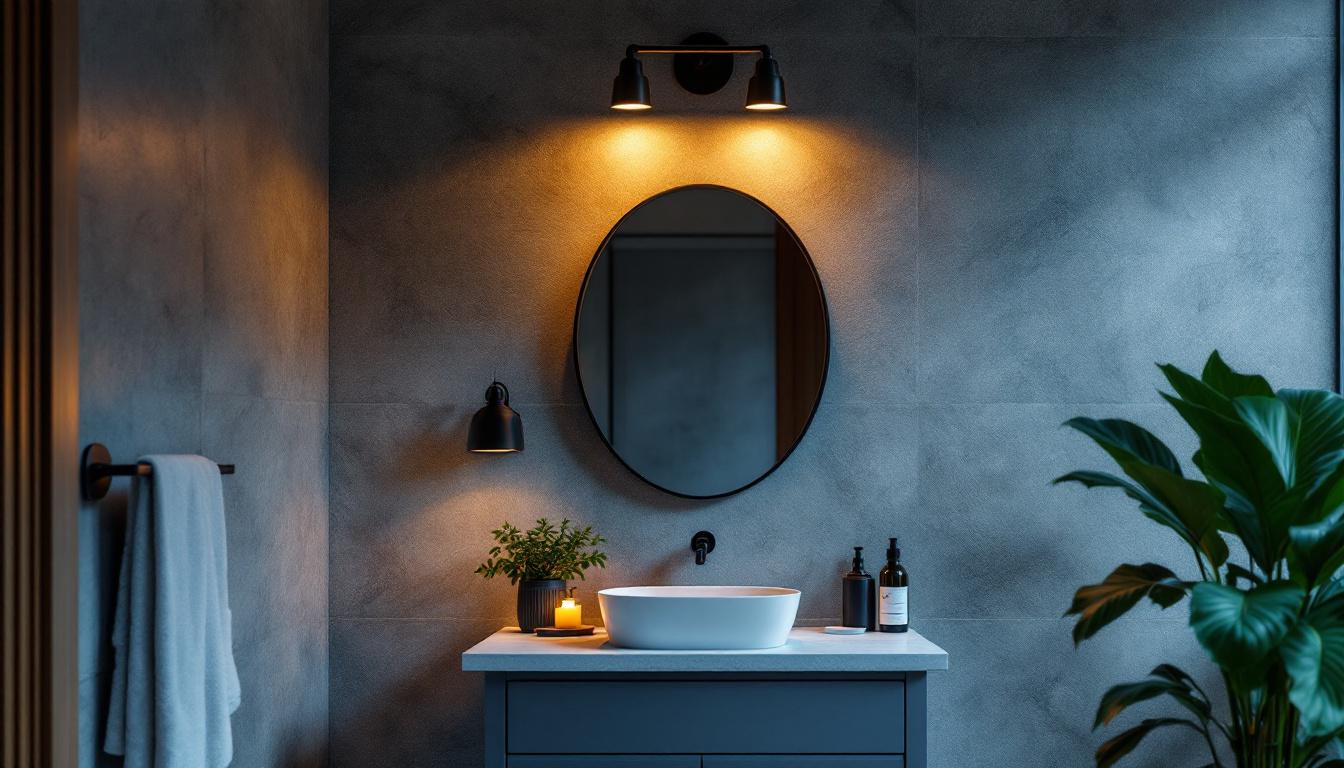
Choosing the right lighting contractor can significantly impact the success of a project. Whether it’s a residential, commercial, or industrial installation, the quality of lighting can enhance aesthetics, functionality, and energy efficiency. This guide aims to provide lighting contractors with essential insights into selecting the right partners for their projects.
Lighting contractors play a crucial role in the design, installation, and maintenance of lighting systems. They are responsible for ensuring that the lighting meets both aesthetic and functional requirements. Understanding their role is essential for making informed decisions when selecting a contractor.
A lighting contractor’s first responsibility often involves design and planning. This includes assessing the space, understanding the client’s needs, and creating a lighting plan that enhances the environment. A skilled contractor will consider various factors, such as the type of fixtures, placement, and energy efficiency.
Moreover, they should be familiar with local codes and regulations, ensuring that all installations comply with safety standards. This knowledge is vital for avoiding potential legal issues and ensuring a smooth project execution. In addition to technical specifications, a good contractor will also stay updated on the latest trends in lighting design, such as smart lighting solutions that allow for greater control and customization. This can significantly enhance the user experience, providing options for mood lighting, energy-saving settings, and even automated adjustments based on the time of day or occupancy.
Once the design is finalized, the contractor will proceed with the installation. This phase requires technical expertise and a keen eye for detail. Proper installation is critical to achieving the desired lighting effects and ensuring the longevity of the fixtures.
After installation, maintenance becomes a key aspect of the contractor’s responsibilities. Regular checks and updates are necessary to keep the lighting system functioning efficiently and to address any issues that may arise over time. This ongoing relationship with the client can also lead to opportunities for upgrades or expansions, as technology and design preferences evolve. Furthermore, a proactive maintenance schedule can help in identifying potential problems before they escalate, thus saving costs and minimizing disruptions to the space being illuminated. Many contractors also offer energy audits, which can help clients optimize their lighting systems for better efficiency and lower utility bills, making their services not just about installation but also about long-term sustainability and cost-effectiveness.
When selecting a lighting contractor, several factors should be taken into account. These factors can influence the overall success of the project and ensure that the chosen contractor aligns with the project’s goals and requirements.
Experience is one of the most critical factors when selecting a lighting contractor. A contractor with a proven track record will have the necessary skills and knowledge to handle various challenges that may arise during a project. Look for contractors who have worked on similar projects, as they will be more familiar with the specific requirements and potential pitfalls.
Additionally, expertise in different types of lighting systems, such as LED, fluorescent, or smart lighting, can provide valuable insights into the best solutions for a particular project. A well-rounded contractor will also stay updated on the latest trends and technologies in the lighting industry. For instance, understanding the nuances of energy-efficient lighting can not only reduce operational costs but also contribute to sustainability goals, making it an essential aspect of modern lighting design.
A contractor’s reputation can speak volumes about their reliability and quality of work. Seeking references from previous clients can provide a clearer picture of what to expect. Reviews and testimonials can highlight strengths and weaknesses, helping to make an informed decision.
Furthermore, consider asking for a portfolio of past projects. This visual evidence of their work can help gauge their style and capabilities, ensuring that they align with the aesthetic vision for the project. Engaging with past clients can also reveal insights into the contractor’s communication style and project management skills, which are crucial for maintaining a smooth workflow and addressing any issues that may arise during the project.
It is essential to verify that the lighting contractor holds the necessary licenses and insurance. Licensing ensures that the contractor adheres to local regulations and standards, while insurance protects both the contractor and the client from potential liabilities during the project.
Requesting proof of insurance, including liability and worker’s compensation, can provide peace of mind. This step is crucial in safeguarding against accidents or damages that may occur during the installation process. Additionally, it may be beneficial to inquire about any warranties or guarantees offered by the contractor on their work. A contractor who stands behind their services will often provide assurances that can protect your investment and ensure that any issues are promptly addressed after project completion.
Once potential contractors have been identified, the next step is to evaluate their project proposals. A well-structured proposal should provide clarity on various aspects of the project, including timelines, costs, and scope of work. It’s also important to assess the contractor’s understanding of the project requirements and their ability to meet them. A thorough proposal will not only outline the technical details but also demonstrate the contractor’s vision for the project, which can be indicative of their creativity and problem-solving skills.
Cost is often a deciding factor when selecting a contractor. However, it is essential to look beyond the bottom line. A low bid may indicate a lack of experience or quality, while a higher bid may reflect superior materials and workmanship. It’s crucial to evaluate the long-term value rather than just the initial expenditure, as investing in quality can lead to reduced maintenance costs and longer-lasting results.
When reviewing cost estimates, ensure that they are detailed and transparent. This includes a breakdown of materials, labor, and any additional fees. Understanding the pricing structure can help avoid surprises later in the project. Additionally, consider requesting references or case studies from previous projects that demonstrate the contractor’s ability to stay within budget while delivering high-quality work. This can provide further insight into their reliability and efficiency.
The timeline for project completion is another critical aspect to consider. A reliable contractor should provide a realistic timeline that outlines key milestones and deliverables. This clarity helps manage expectations and ensures that the project stays on track. It’s also beneficial to discuss potential challenges that could impact the timeline, such as weather conditions or supply chain issues, and how the contractor plans to mitigate these risks.
Additionally, inquire about the contractor’s approach to project management. A well-organized contractor will have systems in place to monitor progress and address any issues that may arise promptly. Regular updates and communication are vital; therefore, understanding how the contractor plans to keep stakeholders informed throughout the project can enhance collaboration and trust. Furthermore, consider the tools and technologies they use for project tracking, as modern solutions can significantly improve efficiency and accountability.
Effective communication is vital for a successful partnership with a lighting contractor. The ability to collaborate seamlessly can make a significant difference in the project’s outcome.
During the initial consultations, assess how well the contractor listens to your ideas and concerns. A good contractor will take the time to understand your vision and provide feedback, ensuring that both parties are aligned on the project goals.
Moreover, open lines of communication should be established from the beginning. This includes discussing preferred methods of communication, frequency of updates, and any tools that will be used for project management.
Challenges are inevitable in any project, and the contractor’s problem-solving approach can significantly impact the project’s success. A proactive contractor will anticipate potential issues and have strategies in place to address them effectively.
During discussions, ask about past challenges the contractor has faced and how they resolved them. This insight can provide confidence in their ability to handle unforeseen circumstances during your project.
After the completion of the project, ongoing support can be a valuable asset. A reputable contractor will provide post-project services, ensuring that the lighting system continues to function optimally.
Inquire about the contractor’s maintenance services. Regular maintenance is essential for prolonging the life of the lighting system and ensuring it operates efficiently. A contractor who offers maintenance packages can save clients time and money in the long run.
Additionally, they should be willing to provide guidance on how to care for the lighting system, including tips on bulb replacement and troubleshooting common issues.
Warranties and guarantees are important considerations when selecting a lighting contractor. A contractor who stands behind their work will offer warranties on both materials and labor. This assurance can provide peace of mind and demonstrate the contractor’s commitment to quality.
Review the terms of any warranties carefully, ensuring that they cover potential issues that may arise after project completion. Understanding the warranty terms can help in making informed decisions about repairs or replacements in the future.
Choosing the right lighting contractor is a critical step in ensuring the success of any lighting project. By considering factors such as experience, reputation, communication, and post-project support, contractors can make informed decisions that align with their project goals.
Taking the time to evaluate potential contractors thoroughly can lead to successful partnerships and outstanding results. Ultimately, the right contractor will not only meet the technical requirements of the project but also enhance the overall experience for all parties involved.
In the ever-evolving world of lighting design, staying informed and making thoughtful choices is essential. By following this guide, lighting contractors can navigate the selection process with confidence, ensuring that they choose the right partners for their projects.
Ready to elevate your lighting projects with the best in the industry? Look no further than LumenWholesale for all your lighting needs. Our commitment to providing spec-grade lighting products at unbeatable wholesale prices ensures that you can deliver exceptional quality without breaking the bank. Say goodbye to local distributor markups and hello to a vast selection of reliable, high-performance lighting options. With the added convenience of free shipping on bulk orders, LumenWholesale is your go-to source for premium lighting solutions. Don’t compromise on quality or value; discover wholesale lighting at the best value today and make your next project shine.

Unlock the essentials of industrial vanity lighting in just five minutes with this concise guide tailored for lighting contractors.

Discover how motion sensing outdoor lights can revolutionize your home’s energy efficiency.

Discover how warehouse LED light fixtures can revolutionize your lighting projects by boosting efficiency and reducing costs.

Discover the transformative impact of modern LED lights on the lighting industry.